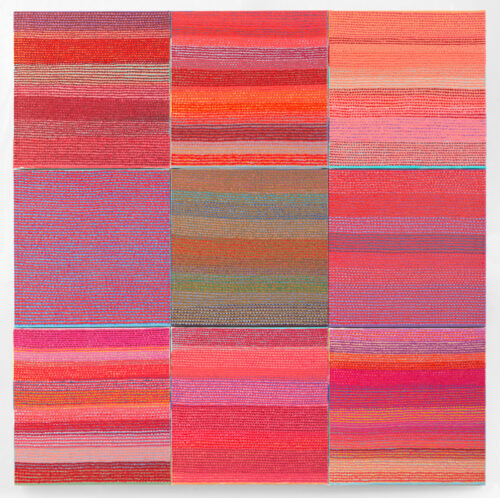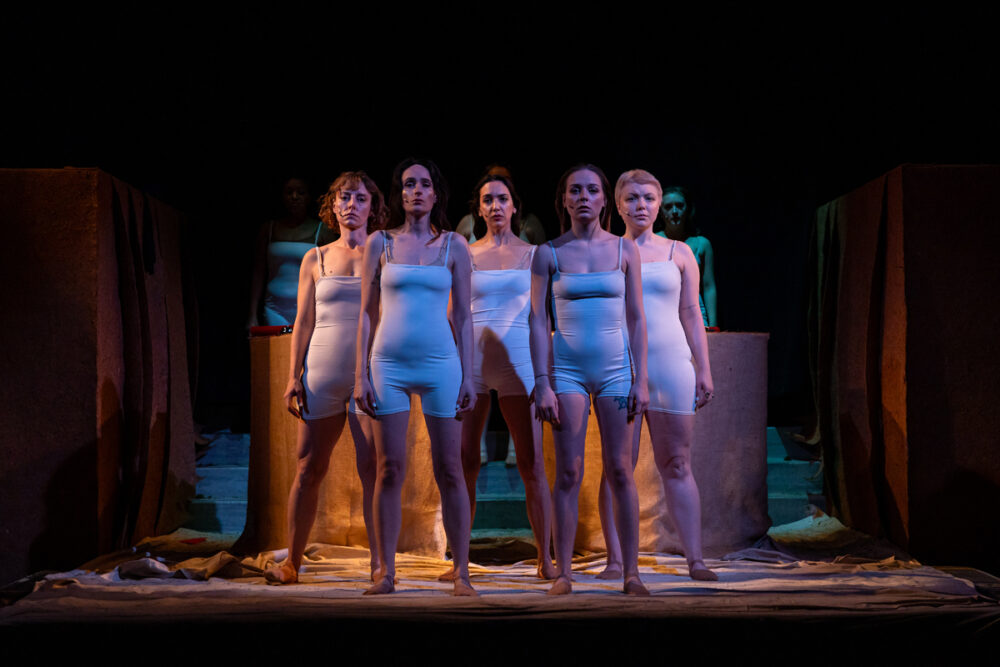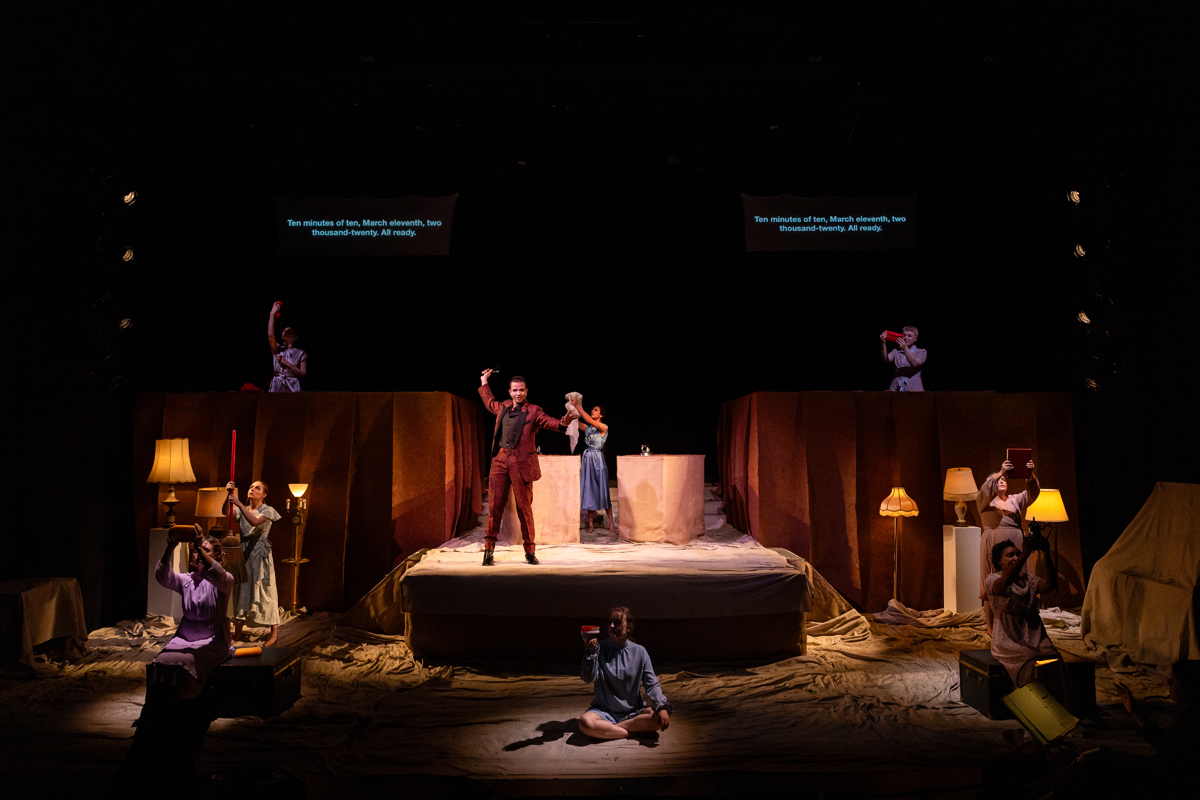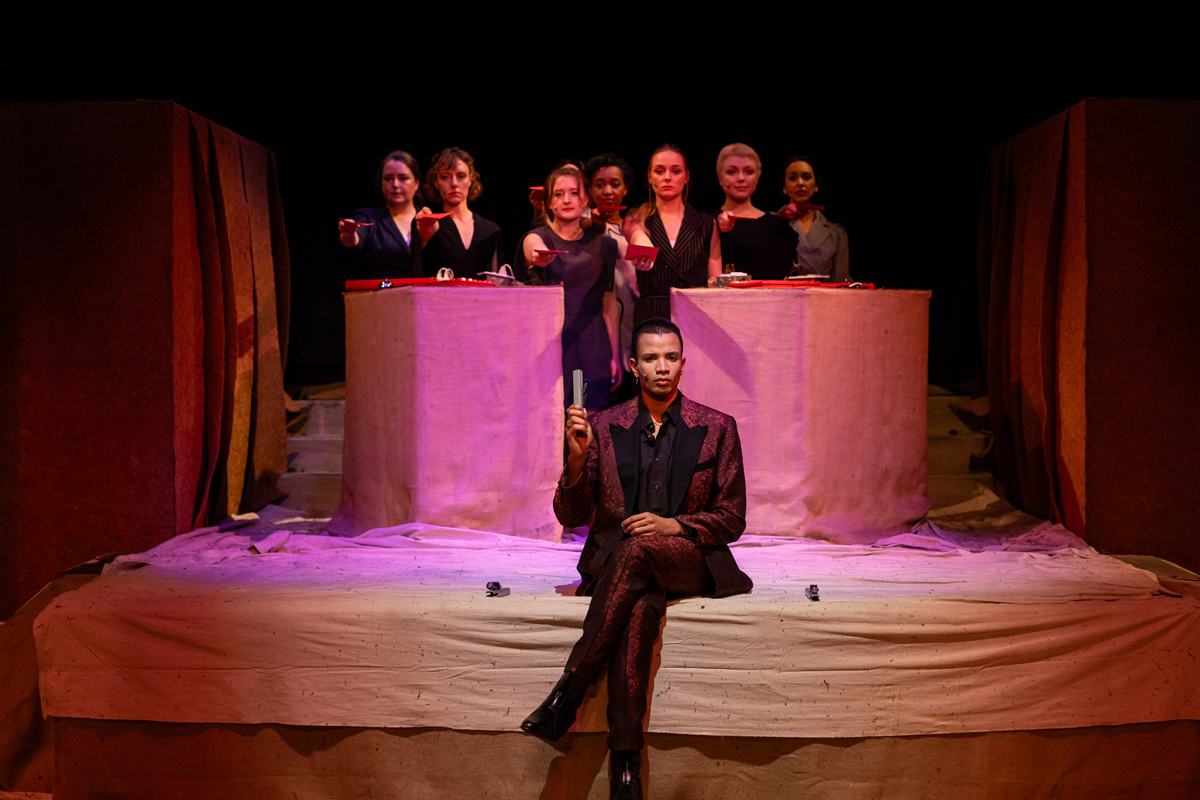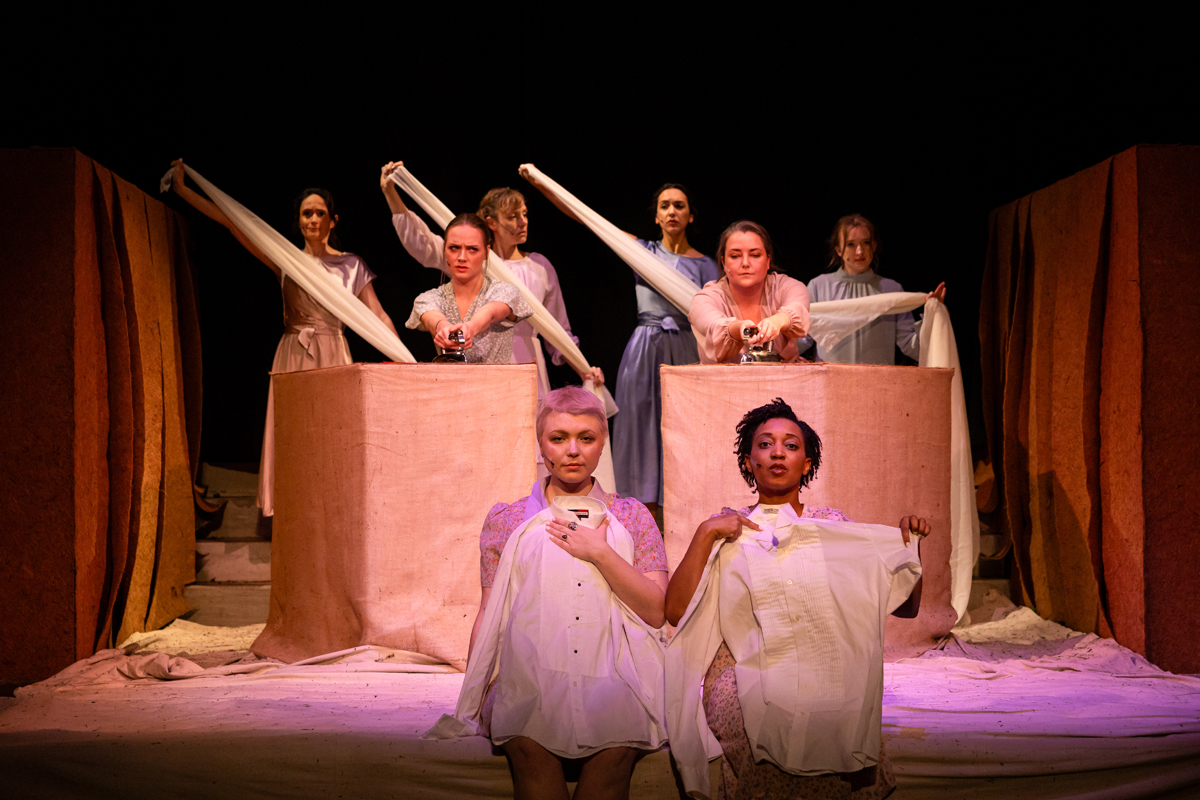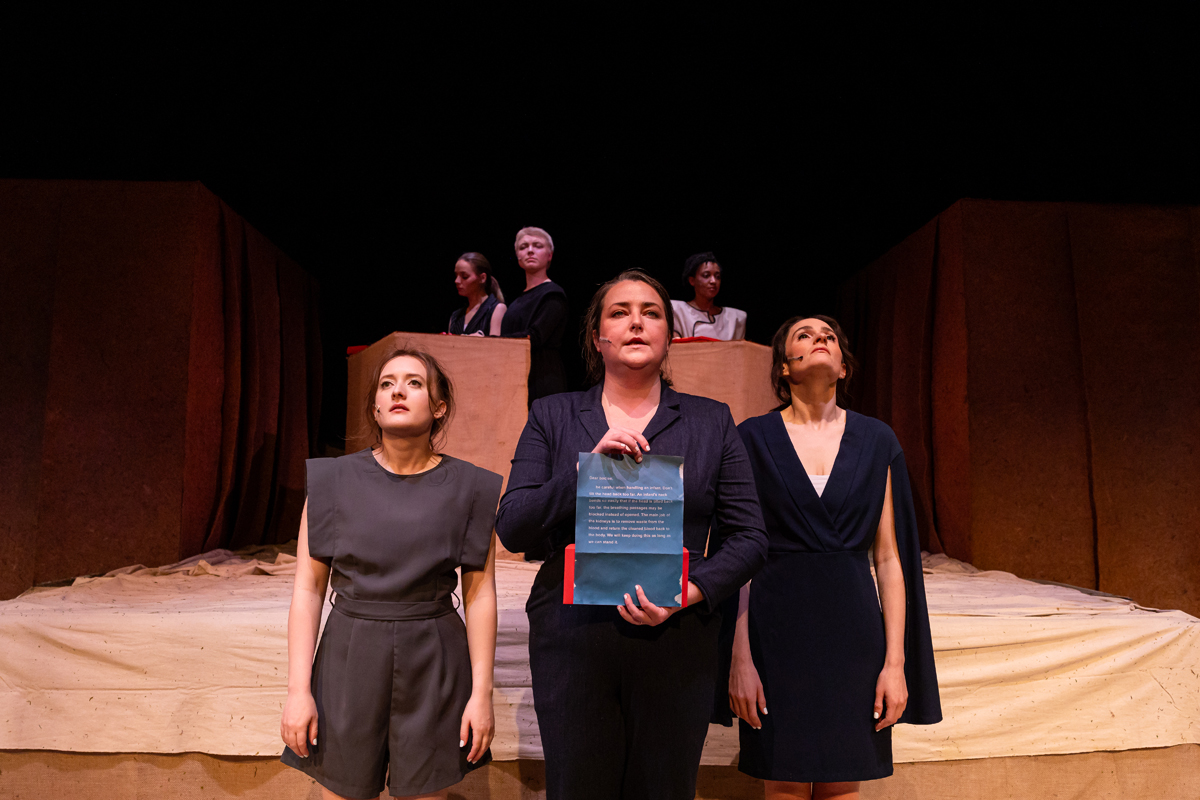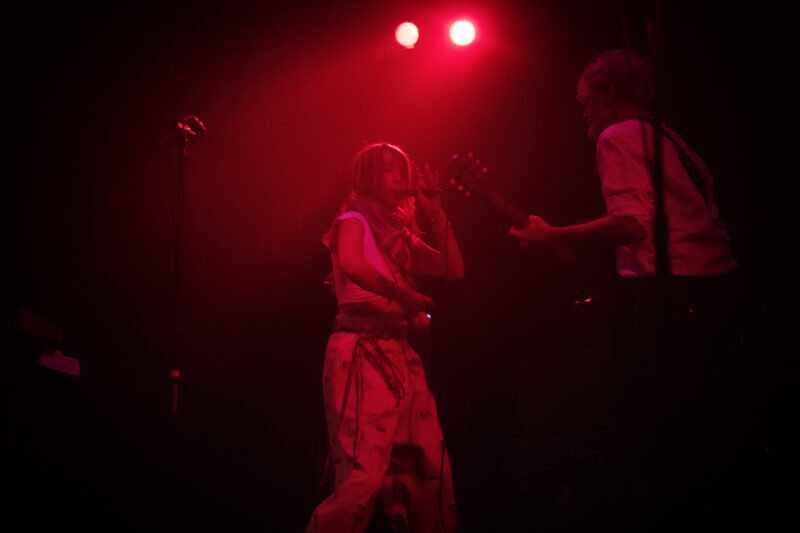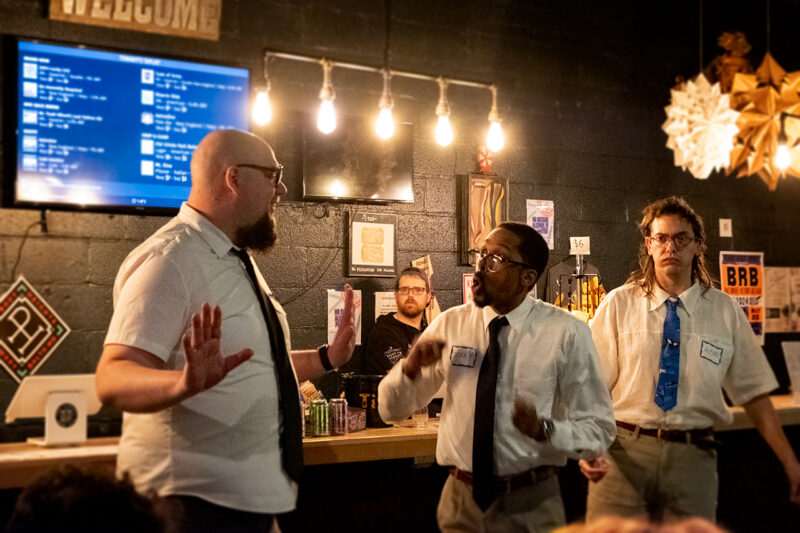The Lights Went Out Because of a Problem speaks to the many ways in which a group of people can be impacted by a single event. Lights, plural; Problem, singular. One bolt of lightning can send a neighborhood into darkness. Problem, as so often is the case, contains here a multitude of meanings. Definitions are multiple in Pierson’s text, like a dictionary with a litany of entries for each word. If meanings are malleable, is life a question of multiple choice?
There is a line in the play that breaks down the etymology of the word metaphor: “From the Greek: “meta” meaning “over, across” and “pherein” meaning “to carry, bear.” A metaphor is something one can carry, something with (metaphoric) weight. Even though metaphors help us make meaning, help us to connect and communicate with one another across vast gaps among our individual experiences, there is a heaviness to the whole enterprise.
A metaphor—for COVID, for theft, for rape, for death, for any type of “outage” in which we lose our power—can be a hefty burden.
The optimism and sincerity of The Acme Corporation’s last three productions is admirable, especially when pessimism and sarcasm are the low-hanging fruit. They continue to insist that salvation can be found among community even as the world bombards the average person with headline after headline, sledgehammer after sledgehammer, problem after problem. The Lights Went Out Because of a Problem revels in the idea that transformation can be achieved through repetition. Characters scrub and polish and sweep. They make phone calls and type letters. They bathe. Like any exercise, repetition can feel grueling, but it’s also a reliable way to feel reinvigorated. Alive.
On the cover of the program for The Lights Went Out Because of a Problem, there is a diagram of a heart. But none of the letters labeling each part of the heart correlates to any key. If one does not know the anatomy, one can tell there are parts but not what these parts are or what they are called.
This seems a metaphor for the heart of this play: we know there are parts of us we all share in common, we know these parts are vital for our survival, and we know all the answers are inside of us—whether we can articulate them or not.
The Lights Went Out Because of a Problem: a found opera runs through December 17 at The Voxel. Showtimes and tickets are available online.
Written by Lola B. Pierson (and many others), music by Allison Clendaniel, directed by Lola. B. Pierson and Jarod Hanson
